When Marilyn and Aleksandr Dmitrier saw a sick puma at the Saransk Zoo in Penza, Russia, they felt compelled to rescue him.
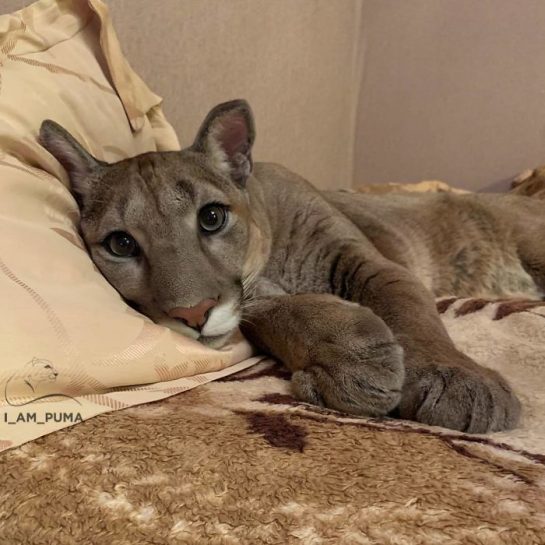
The 8-month-old puma was part of a litter of 3 cubs born at the zoo. He had been experiencing health issues since he was 3 months old. The Dmitriers had always wished to have a large feline as a pet, and they felt a strong desire to assist him.
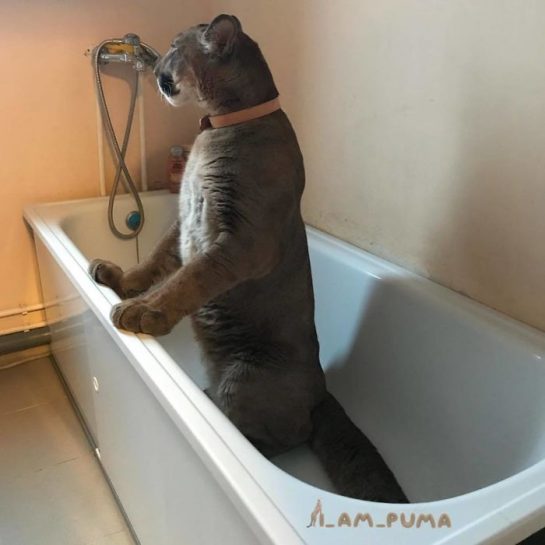
The couple didn’t make their decision lightly and for several days pondered over the ethics of owning an exotic pet, such as a big cat, and allowing it to reside in their home. Eventually, they wanted to rescue the puma and devised a plan and reached out to the zoo to discuss the possibility of buying the cat.
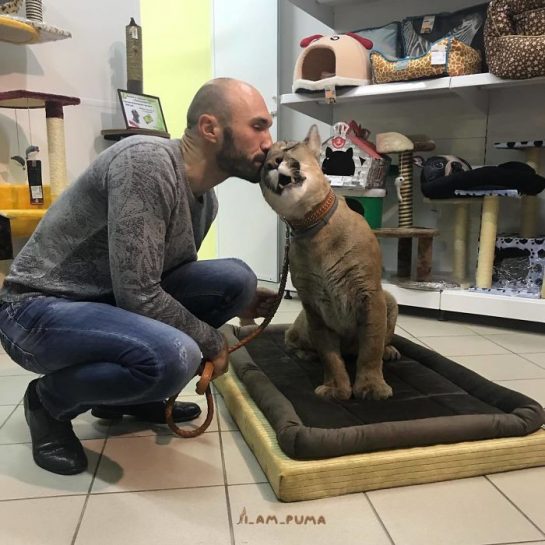
Surprisingly, the zoo agreed to their proposal and they negotiated the purchase of the puma. The Dmitriers named the sickly cub Messi, after the world-renowned soccer player, and provided him with all the medical care and attention he needed to regain his strength in his new home.
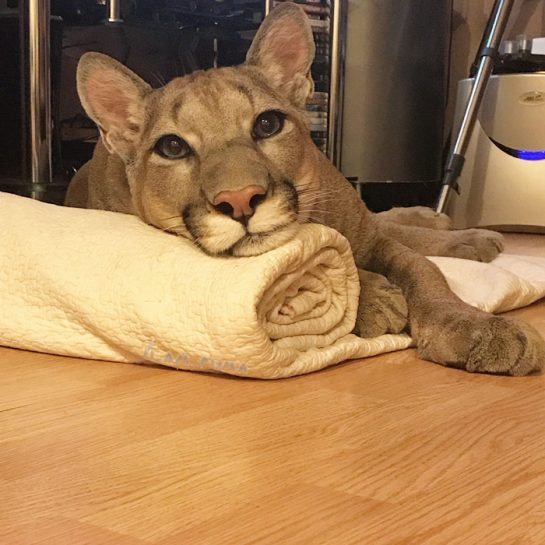
Up until then, Messi had lived a very sedentary life, so his new owners started taking him on two walks a day. His owners found that in this regard, the cat was much like a dog.
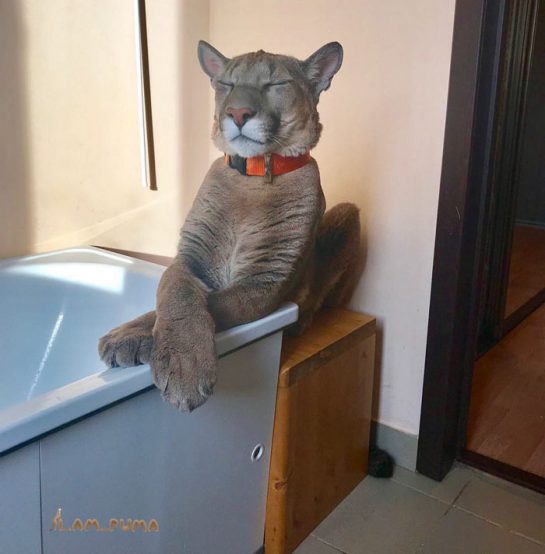
They also found a dog obedience school that was willing to accept Messi as a student. He was enrolled and started his training. Currently, he knows 10 different commands. One can only imagine what the other dogs thought of the puma in their class.
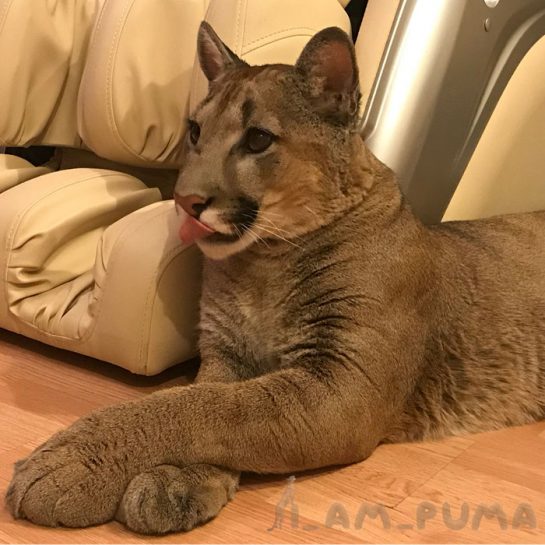
Messi’s owners describe him as a gentle and well-behaved creature. Although they acknowledge the risks associated with owning a large, wild animal, they say that he is a friendly member of their family who interacts well with people. They note that in many respects, he resembles a regular cat, albeit on a much larger scale.
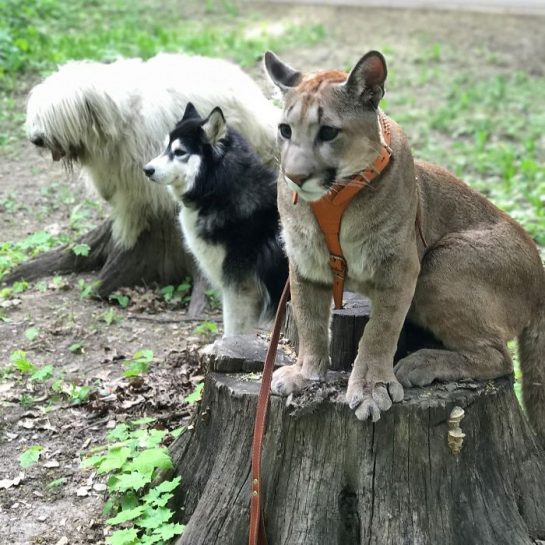
Messi’s owners are committed to keeping him safe and healthy and understand that he can never be released back into the wild. As an adult, pumas can reach heights of 2 to 3 feet and weigh between 120 to 220 pounds.
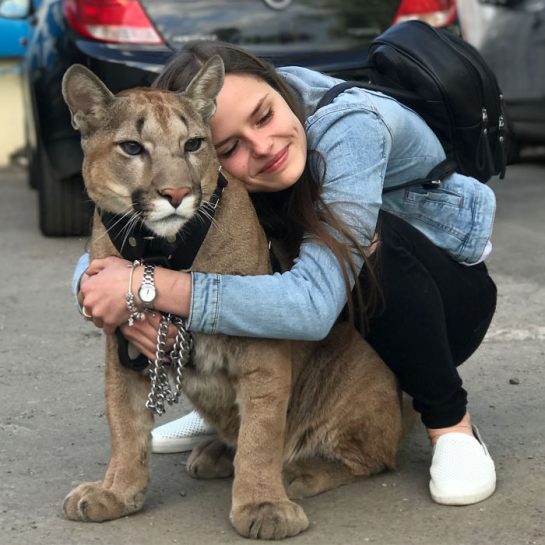
Please share Messi’s story with your family and friends.
